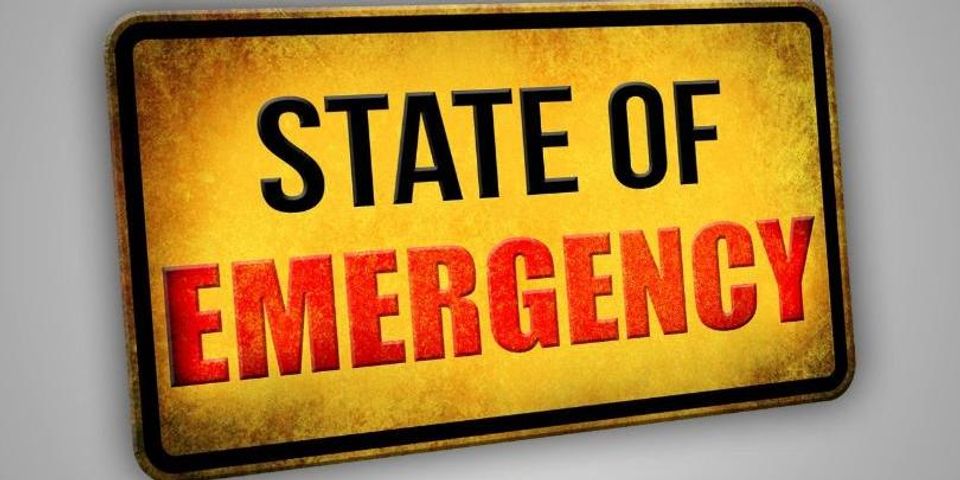
A special alert from our colleagues at the Community Advocacy Network (CAN)...
1. Special Powers During a State of Emergency
Yesterday, Governor Scott declared a State of Emergency for the entire state of Florida.
- Board of Directors may not be aware of special powers during a State of Emergency pursuant to Florida Statute, 718.1265 of the Condominium Act, 719.128 of the Cooperative Act and 720.316 of the Homeowners Association Act. These special powers are limited to the time "reasonably necessary" to protect the health, safety, and welfare of the association owners, family members, tenants, guests, agents or invitees and mitigate potential property damage; unless any of these powers are specifically prohibited by the association's governing documents.
(a) Conduct board meetings and membership meetings with notice given as is practicable. For example, radio, U.S. mail, internet, public service announcements, and conspicuous posting on the association property or any other means the board deems reasonable under the circumstances.
(b) Cancel and reschedule any association meeting.
(c) Name as assistant officers persons who are not directors, which assistant officers shall have the same authority as the executive officers to whom they are assistants during the state of emergency to accommodate the incapacity or unavailability of any officer of the association.
(d) Relocate the association's principal office or designate alternative principal offices.
(e) Enter into agreements with local counties and municipalities to assist counties and municipalities with debris removal.
(f) Implement a disaster plan before or immediately following the event for which a state of emergency is declared.
(g) Based upon advice of emergency management officials or upon the advice of licensed professionals retained by the board, determine any portion of the association property unavailable for entry or occupancy by owners, family members, tenants, guests, agents, or invitees to protect the health, safety, or welfare of such persons.
(h) Require the evacuation of the association in the event of a mandatory evacuation order in the locale in which the association is located. Should any owner or other occupant of an association fail or refuse to evacuate the association property where the board has required evacuation, the association shall be immune from liability or injury to persons or property arising from such failure or refusal. This only applies to Condominiums and Cooperatives.
(i) Based upon advice of emergency management officials or upon the advice of licensed professionals retained by the board, determine whether the association property can be safely inhabited or occupied.
(j) Mitigate further damage, including taking action to contract for the removal of debris and to prevent or mitigate the spread of fungus, including, but not limited to, mold or mildew, by removing and disposing of wet drywall, insulation, carpet and cabinetry.
(k) Levy special assessments without a vote of the owners.
(l) Without owners' approval, borrow money and pledge association assets as collateral to fund emergency repairs and carry out the duties of the association when operating funds are insufficient.
2. Insurance Claims
Many of us are terrified by the process of making an insurance claim. In fact, most of us believe that our rates will go up or we will be dropped in the case of a claim.
THIS IS FALSE WHEN IT COMES TO A HURRICANE CLAIM
YOUR INSURANCE COMPANY CANNOT DROP YOU OR YOUR ASSOCIATION FOR MAKING A PROPERTY DAMAGE INSURANCE CLAIM. THESE CLAIMS ARE PROTECTED.
Below is a quick checklist of what you and the Board should be doing NOW in addition to making the standard preparations:
- Locate all insurance documents and keep all contact information handy.
- REMEMBER YOUR FRIENDLY INSURANCE AGENT HAS NO SAY IN WHETHER YOUR COMMUNITY RECEIVES MONEY
- Read YOUR Dec Page (overview) of the insurance policy. Know the hard deadline for making a claim.
- Check for a hurricane deductible in the policy. Have a plan regarding how the Board will collect the money needed for insurance deductibles. They can be paid through reserves, assessments, loans or a hybrid approach.
WE HAVE HANDLED MORE THAN 3,000 INSURANCE CLAIMS. GET A SECOND OPINION WHEN THE INSURANCE COMPANY CLAIMS THAT THE DAMAGE YOUR COMMUNITY SUFFERED IS BELOW THE DEDUCTIBLE
- In the event there is damage after the storm, document it with date-stamped photos. The Board may change its mind about making a claim when the bills come due. Obtain multiple estimates for repairs from qualified and well-known contractors.
- Do not take the insurance company's estimate of damage at face value. If there is ever any doubt about whether your association is getting fair treatment from its insurance company, please feel free to contact us for more information. You always have the right to independent representation in the event of an insurance claim.
- Property claims that are the result of a hurricane, may not be used as a cause for cancellation or non-renewal, unless the insured failed to take action reasonably requested by the insurer to prevent recurrence of damage to the property. When there is a State of Emergency, the insurer may not cancel or non-renew a property policy until 90 days after the property has been repaired. (See Florida Statute, 627.4133)
In the coming days and weeks, we will continue to walk you through issues like lines of credit, reserve funds, special assessments and immediate damage restorations including water removal, roof repair, blue tarping, carpet removal, window covering, etc. We will also provide regular updates regarding insurance claims processing, tree removals, construction repairs and contracts, hurricane debris and other storm relate matters.
Please remember to use your common sense and be careful running generators inside (including garages) where carbon monoxide poisoning can occur. Take special care of gas storage and any other extraordinary supplies.
Above anything else, I wish all of you, your families, loved ones, and pets a safe next few days.
Yours in Community,
Community Advocacy Network (CAN)
Founding Partner and Chairman
With more than 40 years experience in Association Management, Hara Community 1st Advisors has the expertise needed to efficiently manage your Homeowner’s or Condominium Association while providing the highest level of service to Boards and Owners. Contact HMI’s General Manager Rick Michaud, or visit HMI online to learn more about their variety of client-customized services today.
About the Business
Have a question? Ask the experts!
Send your question

 rfinkel, Esq.
rfinkel, Esq.